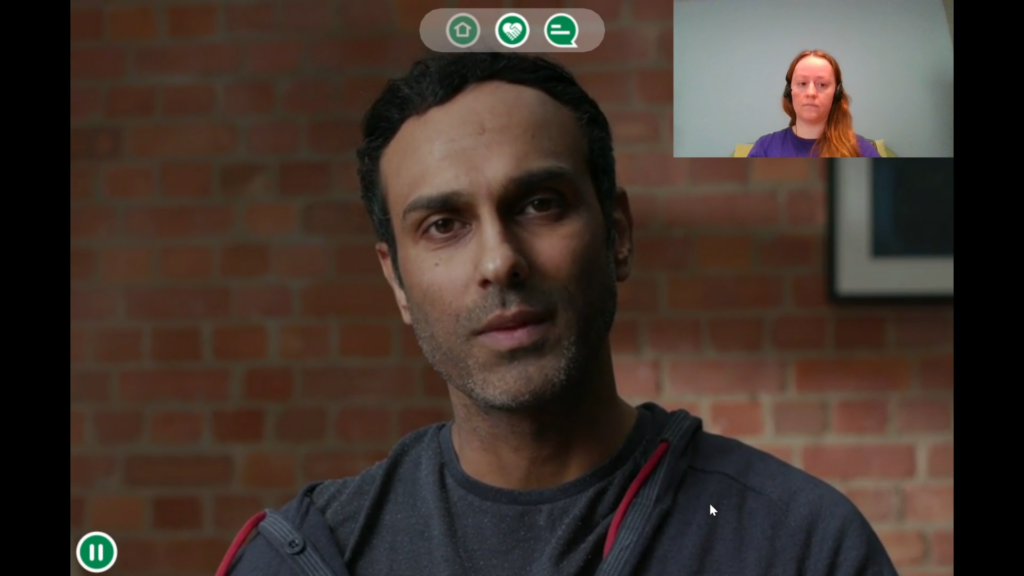It’s estimated that around one in four of us will experience a mental health issue of some kind each year. But with stigma around mental health, the problem often goes unspoken or misunderstood.
Lloyds Banking Group (LBG) has long been committed to supporting its colleagues get better mental health outcomes. However, it knew that many of its colleagues felt unequipped to have supportive conversations when mental health issues arise at work. Mishandled conversations can lead to long-lasting damage for the individual as well as the business.
So LBG worked with us at Make Real to create a learning experience that would help colleagues understand the signs of common mental health conditions. It would also help them build the confidence to have good quality conversations that would lead to better outcomes.

Together, we created Hear to Listen, an experience in which learners have to practise having a difficult conversation aloud, and then watch themselves back to reflect on how they handled the conversation. This later formed the basis of a study to show what happens when you turn your learners into activists, comparing the self-reflective learning against traditional eLearning methods. There were positive outcomes for both groups:
But the changes were much more statistically significant in the group that tried the experimental, self-reflective version.
The project also achieved a Gold Award for “Excellence in the design of learning content” at the Learning Technologies Awards in 2022. The judges commented that it was a:
“Beautifully designed piece of learning that provides a safe space for managers and employees to gain confidence on a very important topic.”
The module covers several activities including:
For the simulated calls, the module accesses the learner’s webcam and microphone, so that they become an active participant in the conversation. Following the call, they watch themselves back to reflect on how they handled the conversation and to consider what they might do differently in future.
We teamed up with Lynda Joy Gerry, from the Bioengineering Institute of Auckland, to explore the real difference it makes when you take learners out of their comfort zone and challenge them to do something a little bit different.
We compared the version of the learning with the speak aloud activities against a control version without it, which used video, varied interaction, multiple choice questions and reflection activities.
The study showed that thoughtful, well-designed e-Learning can make a difference in complex topics like this, with both groups showing a change in attitude towards those with mental health conditions.
The changes were more significant in the group that did the simulated web calls. This group was also less likely to blame people for their condition. And while they actually felt less confident in having these difficult conversations, they were in the end more willing to have them.
We had one final way to see how much the needle had moved on turning these learners into activists. We asked participants to write a letter to an elected official on this topic, then invited them to a ‘town hall’ event in which they would have to give up their own time to help. We found that those who had completed the more challenging experience focussed far more on the need for positive action.
Since completing this particular project and the study, we’ve applied the principles to several learning experiences with other clients to turn learners into active participants, such as with Kenes Group.
We’re always happy to talk to you about how immersive technologies can engage your employees and customers. If you have a learning objective in mind, or simply want to know more about emerging technologies like VR, AR, or AI, send us a message and we’ll get back to you as soon as we can.